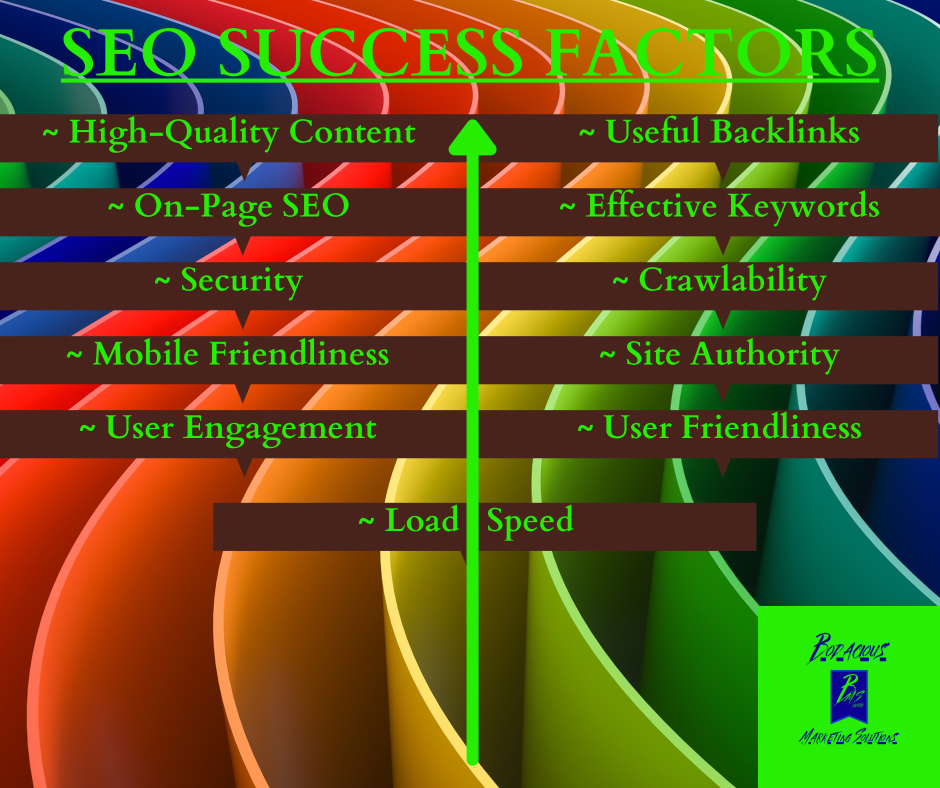Understanding SEO: A Comprehensive Guide to Search Engine Optimization
Search Engine Optimization (SEO) is a term that you may have encountered numerous times in the digital marketing world. But what exactly does it mean? In simple terms, SEO is the process of optimizing your website to improve its visibility on search engines like Google, Bing, and others. The goal of SEO is to increase the quantity and quality of traffic to your site through organic search results. Unlike paid advertising, which requires a financial investment to achieve visibility, SEO is a powerful way to attract visitors to your website for free.
The Importance of SEO
In today’s digital age, having a strong online presence is crucial for any business or organization. With millions of websites competing for attention, how can you ensure that yours stands out? This is where SEO comes into play. A well-executed SEO strategy can lead to higher rankings in search engine results pages (SERPs), which translates to increased visibility, more traffic, and ultimately, greater conversions.
The Basics of SEO
While the concept of SEO may seem straightforward, the reality is that it involves a multitude of factors and strategies. In fact, there are over 200 SEO factors that search engines use to determine how websites rank. This can seem daunting, but it's essential to recognize that these factors are not all created equal. Some carry significantly more weight in the ranking process than others, allowing for a more focused approach.
Key Components of SEO
Here are some of the most critical components that contribute to a successful SEO strategy:
1. High-Quality Content:
Content is king in the world of SEO. High-quality, relevant, and engaging content is crucial for attracting visitors and keeping them on your site. Search engines prioritize websites that offer valuable information to users, so focus on creating content that addresses your audience's needs and questions.
2. Keyword Research:
Understanding which keywords your target audience is using to search for your products or services is fundamental to SEO. This involves researching and selecting the right keywords to incorporate into your content. Tools like Google Keyword Planner can help you identify high-traffic keywords that are relevant to your business.
3. Mobile Responsiveness:
With the increasing number of users accessing the internet via mobile devices, having a mobile-responsive website is essential. Google prioritizes mobile-friendly websites in its ranking algorithm, so ensuring that your site looks and functions well on mobile devices can significantly impact your SEO performance.
4. Page Load Speed:
The speed at which your website loads can affect both user experience and search rankings. Users are more likely to abandon a site that takes too long to load. Tools like Google PageSpeed Insights can help you analyze your site’s speed and identify areas for improvement.
5. Backlinks:
Backlinks, or inbound links from other websites, are crucial for building your site's authority. Search engines view backlinks as endorsements; the more high-quality sites that link to you, the more credible your site appears. Focus on creating valuable content that others will want to link to, and consider outreach strategies to gain backlinks from reputable sources.
6. Security: In recent years, search engines have placed a greater emphasis on security. Websites that use HTTPS encryption are favored in search rankings. If you haven’t already, consider obtaining an SSL certificate to secure your site and enhance user trust.
The Complexity of SEO
Given the multitude of factors involved, it’s clear that SEO is not a one-size-fits-all solution. The complexity of SEO can vary greatly depending on your specific industry, target audience, and competition. For example, a small local business in a niche market may achieve favorable rankings relatively quickly with a limited budget. In contrast, a large e-commerce site operating in a highly competitive space may require a more substantial investment of time and resources to see similar results.
SEO Strategies for Different Markets
1. Local SEO:
If your business serves a specific geographic area, local SEO should be a key focus. This involves optimizing your Google My Business listing, gathering customer reviews, and using location-based keywords. Local SEO can drive targeted traffic and help you connect with potential customers in your community.
2. National or Global SEO:
For businesses targeting a broader audience, a more comprehensive SEO strategy is necessary. This may involve extensive keyword research, content marketing, and a focus on building authority through backlinks and guest blogging.
3. Content-Driven SEO:
Regardless of your market size, content remains at the heart of SEO. Creating high-quality, valuable content that addresses your audience's needs can significantly improve your rankings. Regularly updating your blog or website with fresh content can also signal to search engines that your site is active and relevant.
Measuring SEO Success
To gauge the effectiveness of your SEO efforts, it’s essential to track your progress through various metrics. Key performance indicators (KPIs) to consider include:
- Organic Traffic:
Monitor the amount of traffic coming to your site from organic search results.
- Keyword Rankings:
Keep an eye on your rankings for targeted keywords over time to see if you’re improving.
- Bounce Rate:
A high bounce rate may indicate that visitors are not finding what they expect on your site. Analyzing this can help you refine your content and user experience.
- Conversion Rate:
Ultimately, the goal of SEO is to drive conversions, whether that’s sales, sign-ups, or inquiries. Tracking your conversion rate can help you assess the effectiveness of your overall strategy.
In conclusion, SEO is a vital component of any digital marketing strategy. While it may seem complex, understanding the key factors and how they interplay can empower you to take control of your online presence. Whether you’re a small local business or a larger enterprise, investing in SEO can yield significant returns in visibility, traffic, and conversions.
Remember that SEO is an ongoing process. Regularly updating your strategies based on industry trends, algorithm changes, and user behavior will help you maintain and improve your rankings over time. If you’re unsure where to start or how to optimize your website effectively, consider partnering with us at BMS Digital and use our specialized skills in SEO to your advantage. With the right approach, you can position your business for long-term success in the competitive online landscape.
Get your Free SEO Audit TODAY!













